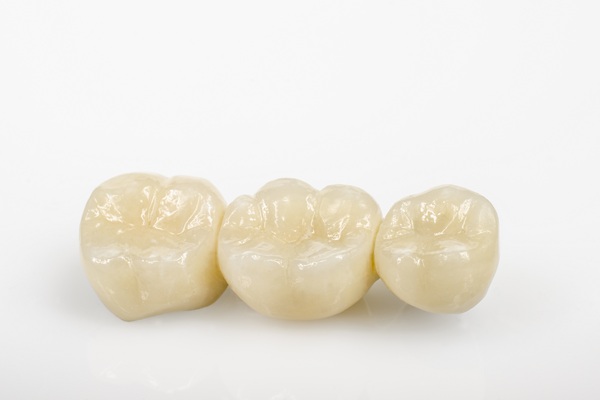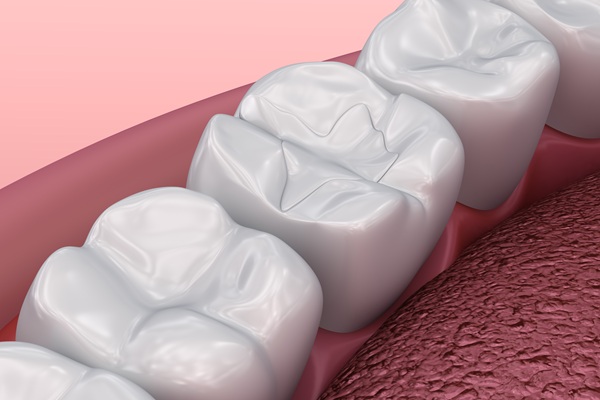How Fluoride Can Relieve Sensitivity After Teeth Whitening

If you want to improve the look of your smile with minimal effort and time, a professional teeth whitening treatment is a great option. These procedures can help remove years of staining for teeth that look whiter, beautiful, and younger after just one session. Post-treatment sensitivity can happen to some, but there are many ways to combat this. Even fluoride can play an important role in keeping teeth healthy while helping to relieve this type of discomfort.
Fluoride is a naturally occurring mineral that has been shown to be very effective at strengthening teeth and preventing decay. The American Dental Association recommends using fluoride toothpaste for daily brushing for this very reason. It is also added to many local water supplies because of its dental health benefits. Many dentists even recommend a topical fluoride treatment at regular checkups to give teeth an extra dose of protection.
Because fluoride is able to help strengthen enamel and mineralize the teeth, it can help reseal tooth surfaces at a faster rate. This protective barrier helps shield the tooth from the temperature changes that lead to sensitivity, which are more likely to happen after a whitening treatment. When combined with other dentist-recommended practices after the procedure, fluoride use can help reduce the minor aches associated with tooth sensitivity.
Understanding sensitivity after teeth whitening
One of the only potential negative side effects of teeth whitening is increased sensitivity after treatment. Some patients do not experience this issue at all. Others may find it very noticeable, especially immediately after the procedure.
What causes sensitivity from teeth whitening?
During a whitening treatment, hydrogen peroxide products are often used to open the enamel pores and target stains. While this allows for better stain removal, it does force the enamel to stay open for an extended period of time. This outer layer is the tooth's first defense against pain and sensitivity, so patients are much more likely to experience these types of discomfort until the enamel closes again.
How long does tooth sensitivity last after treatment?
Most tooth sensitivity caused by teeth whitening is minimal and lasts for no more than a day or two. However, some people may notice some lingering effects. If it lasts for more than a few weeks or becomes severe, patients should follow up with a dentist.
Using fluoride to relieve tooth sensitivity
Because sensitive teeth are caused by changes in tooth enamel, remineralizing this outer layer can help reduce sensitivity at a much faster rate. Fluoride plays an important role in dental health because it has been shown to help remineralize teeth and strengthen enamel. When used properly after a teeth whitening treatment, it can help relieve discomfort while maintaining good oral health.
Many public water supplies add fluoride to tap water, so drinking plenty of this type of water can be a good place to start. Using fluoride toothpaste can also help. Rather than rinsing immediately after brushing, try to let the paste set on your teeth for a least a minute so the teeth can better absorb this important mineral. You can also consume more nutritious foods that are rich in fluoride, including:
- Spinach
- Grapes
- Shellfish
- Potatoes
Just remember to follow a dentist's recommendations for sticking to a white-food diet after whitening treatments.
What else can be done to improve tooth sensitivity?
One of the easiest ways to minimize sensitivity after tooth whitening is to stay away from extremely hot or cold foods. Try to consume things as close as possible to normal body temperature or room temperature instead. Taking care when you clean your teeth can also help. Brush gently with a soft toothbrush, use fluoride toothpaste for sensitive teeth, and use lukewarm water when rinsing.
Conclusion
Teeth whitening can drastically improve the look of your smile. The treatment gently opens the enamel pores for optimum stain removal and it can take a few days for these openings to reseal. Some increased sensitivity may occur as a result, but there are many ways to ease this type of dental discomfort. Fluoride can be one of the most effective options, as it helps remineralize tooth enamel for even faster relief. Using fluoride toothpaste and consuming foods rich in this mineral can be very useful.
Keep in mind that tooth sensitivity after a whitening treatment is very common, but it should only last for a few days. If the discomfort persists for more than two weeks or worsens over time, be sure to contact your dentist.
Request an appointment here: https://www.myddsny.com or call Inna Goykman-Amir DDS at (718) 416-6364 for an appointment in our Brooklyn office.
Check out what others are saying about our dental services on Yelp: Teeth Whitening in Brooklyn, NY.
Related Posts
Over-the-counter teeth whitening products can cause teeth sensitivity, gum irritation, and undesirable results. Instead, it is best to visit a licensed dentist for teeth whitening treatment. They can ensure the safety and effectiveness of teeth whitening treatment. While it may be tempting to try and save a few dollars on a store-bought whitening kit, it is…
If you have yellow teeth, stains on your teeth or are not happy about the appearance of your teeth, getting a teeth whitening or bleaching treatment is a great way to restore them to their original appearance. However, you should find out more about the procedures before deciding on which is best for you.According to…
Many coffee lovers rely on coffee to kickstart their day. Over time, you might have realized the price your teeth have paid to enjoy your cup of joe. The stains on your teeth make them lose their natural whiteness. However, there are several ways that you can remove the coffee stains on your teeth.Apart from…
A porcelain fixed bridge is outstanding as a dental restoration that can replicate the appearance and function of natural teeth. The dental bridge is an option to consider when seeking to replace one or multiple teeth that are damaged or lost. A dentist can design the porcelain fixed bridge to mimic the look of natural…


